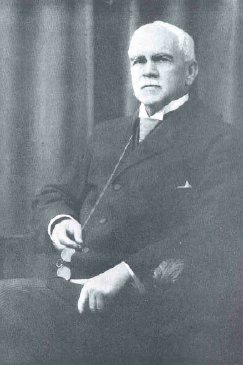Address to the Trustees
by College President George Edward Reed
after an Unimpressive Campaign tour for Funds
to Finance the building projects.
June 4, 1894
The fashion of the time seems to be to elect to the Presidencies
of Colleges' Gentlemen, usually laymen--of independent fortunes.
Gentlemen to whom the question of salary is of no particular importance,
who themselves are able to lead in the making of subscriptions, and who,
by reason of business associations with men of wealth are, presumably capable
of exercising a wider influence in financial lines than is possible to
a clergymen dependent upon a meager salary, and whose song, ordinarily
is that of the old itinerant,
"No foot of land do I possess,
Nor cottage in the wilderness"
The new dirtier seems, in many instances, to have worked admirably
and perhaps is the thing now needed in Dickinson College.
As matters now go in our College's the great
desideratum here is money. To get money would appear to be the peculiar
business of a college President, and if in this he does not succeed, the
proper thing, the only thing, indeed is that he step down and out.
My own success in the line of money making has
not been great as I had hoped, largely, it may be because of inability
to give the matter the required time and attention, possibly because my
genius does not work in that line...
But for the persuasion of members of this board,
coupled with the fear that some harm might come to the College through
any sudden action on our part we should have returned from the position
we now hold, six months ago. If the needed increase in the resources
of the College shall not soon be forthcoming, our conviction is that a
man with larger money getting power should, in the near future, be secured.3
|
